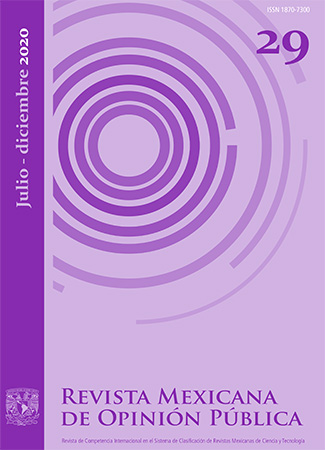The Influence of the Rumor in the Construction of the Media agenda of the Province of Camagüey, Cuba
Main Article Content
Abstract
This article looks into the influence of rumor on media agenda in Camagüey, Cuba. The rumors that were relevant to the public agenda from November 2013 to April 2014 were identified and analyzed, as well as their role as source of information to the provincial media and the mediations that emerged in the process. Participant and non-participant observation, semi-structured interview and qualitative content analysis served as research techniques. The results evidenced the little importance granted to rumors in the creation of media agenda in the province due to individual, organizational and ideological mediations.
Article Details
Citas en Dimensions Service
References
ALLPORT, Gordon y POSTMAN, Leo, “An Analysis of Rumor”, The Public Opinion Quarterly, vol. 10, núm. 4, Oxford University Press, Oxford, Oxfordshire, Reino Unido, 1946, pp. 501-517.
GALLEGO, José Raúl y ROSABAL, Arailaisy, “Las cartas sobre la mesa. Un estudio sobre la relación entre agenda pública y mediática en Cuba: caso Granma”, Signo y Pensamiento, vol. 32, núm. 62, Pontificia Universidad Javeriana, Bogotá, Colombia, 2013, pp. 98-113. Disponible en <https://revistas.javeriana.edu.co/index.php/signoypensamiento/article/view/5339>, [fecha de consulta: 30 de octubre, 2019].
GARCÍA LUIS, Julio, Revolución, socialismo, periodismo. La prensa y los periodistas cubanos ante el siglo XXI, Pablo de la Torriente, La Habana, Cuba, 2013.
KNAPP, Robert, “A Psychology of Rumor”, Public Opinion Quarterly, vol. 8, núm. 1, Oxford University Press, Oxford, Oxfordshire, Reino Unido, 1944, pp. 22-37.
MAZO, María Elena, El rumor y su influencia en la cultura de las organizaciones. Una investigación teórica y bibliográfica, tesis doctoral, Universidad Complutense de Madrid, Madrid, España, 1996.
MCCOMBS, Maxwell, Estableciendo la agenda. El impacto de los medios en la opinión pública y en el conocimiento, Paidós, Barcelona, España, 2006.
NARANJO, Luis, Información, Noticiero de Televisión Camagüey, 3 de marzo, 2014.
PRADO, Yanisleidy y PARDO, Yurislenia, “Otra vez en el Hit Parade”, Adelante, Camagüey, Cuba, 1 de marzo, 2014, p. 4.
RIVADENEIRA, Raúl, Periodismo. La teoría general de los sistemas y la ciencia de la comunicación, Trillas, D. F., México, 1994.
ROSNOW, Ralph, “Rumor as Communication: A Contextualist Approach”, Journal of Communication, vol. 38, núm. 1, Oxford University Press, Oxford, Oxfordshire, Reino Unido, 1988, pp. 12-28.
SHOEMAKER, Pamela y REESE, Stephen, Mediating the Message in the 21st Century. A Media Sociology Perspective, Routledge, Nueva York, EE. UU., 2014.
SOLOVE, Daniel, The Future of Reputation. Gossip, Rumor, and Privacy on the Internet, Yale University Press, New Haven, Connecticut, EE. UU., Londres, Reino Unido, 2007.
WEEKS, Brian y SOUTHWELL, Brian, “The Symbiosis of News Coverage and Aggregate Online Search Behavior: Obama, Rumors, and Presidential Politics”, Mass Communication and Society, vol. 13, núm. 4, Taylor and Francis Group, Oxford, Oxfordshire, Reino Unido, 2010, pp. 341-360. Disponible en <https://www.tandfonline.com/doi/abs/10.1080/15205430903470532>, [fecha de consulta: 30 de octubre, 2019].

Revista Mexicana de Opinión Pública por Universidad Nacional Autónoma de México se distribuye bajo una Licencia Creative Commons Atribución-NoComercial-SinDerivar 4.0 Internacional.
Basada en una obra en http://revistas.unam.mx/index.php/rmop.
